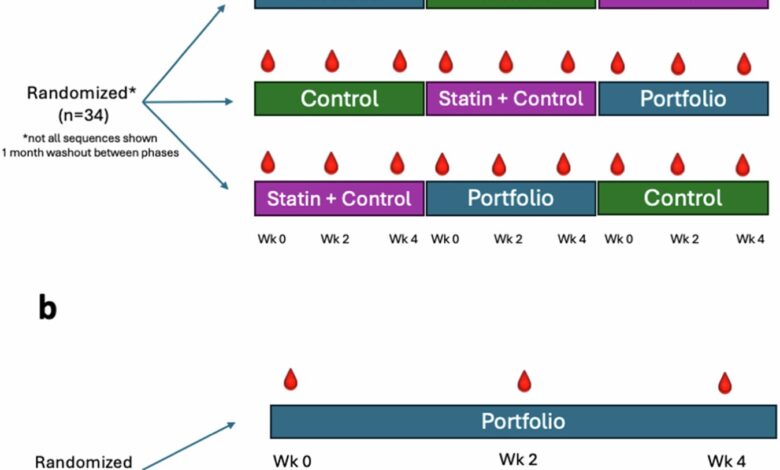Metabolites in blood plasma offer new insights for measuring diet

Researchers have found a new way to assess people’s diets and their health effects by analyzing metabolites in blood. Metabolites are molecules like amino acids and peptides created during or after metabolic processes, and they have the potential to serve as objective biomarkers to evaluate the foods we consume.
Self-reporting, through dietary records or questionnaires, is a common method to assess diets but may lead to inaccurate data. Andrea J. Glenn, an assistant professor of nutrition at NYU Steinhardt School of Culture, Education, and Human Development, explains that analyzing metabolites in blood in controlled feeding studies could help identify biomarkers of dietary patterns more accurately.
In two trials, participants were provided with all the foods required for the portfolio diet, a plant-based diet designed to lower cholesterol levels. Plasma samples were collected at the beginning of the study, at week two, and week four to analyze the metabolites in their blood.
The results, published in the European Journal of Clinical Nutrition, showed that certain metabolites changed significantly for those on the portfolio diet. These changes included increases in metabolites associated with plant-based diets and decreases in metabolites related to the low saturated fat content of the diet.
Glenn, the lead author of the study, emphasizes that these results are promising for using metabolites as objective biomarkers to assess adherence to specific dietary patterns. Further research is needed to confirm and validate these metabolites as reliable biomarkers due to the limited research in this area.
For more information on this study, you can refer to the publication in the European Journal of Clinical Nutrition with DOI: 10.1038/s41430-025-01625-x. The research was conducted by New York University, and you can find more details on their website.
Overall, this study highlights the potential of analyzing metabolites in blood plasma to gain valuable insights into measuring diet and its impact on health. The use of objective biomarkers like metabolites could revolutionize the way we assess dietary patterns and their effects on our well-being.





